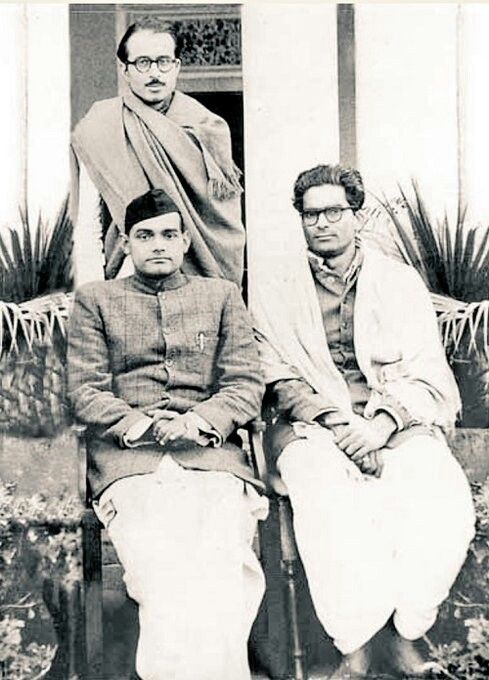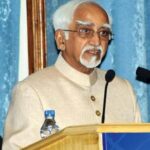Bhairon Singh Shekhawat: A Visionary Leader with a Lasting Impact
Bhairon Singh Shekhawat, the 11th Vice President of India, was a prominent political figure and a visionary leader who left a significant mark on the country’s political and social landscape. From his early life as a farmer’s son in Rajasthan to his role as Vice President, Shekhawat’s journey is an inspiring testament to perseverance, leadership, and commitment to public service.
In this article, we will explore his life, career, and legacy, delving into his contributions to Indian politics, society, and his leadership qualities that made him a respected and influential figure in Indian history.
Early Life and Education
Bhairon Singh Shekhawat was born on 23rd October 1923 in the village of Kachri in the Sikar district of Rajasthan. Hailing from a humble background, his early life was shaped by the values of hard work and discipline instilled by his family. His father, a farmer, taught him the importance of perseverance and the significance of rural development.
Shekhawat completed his early education in his hometown and later moved to Jaipur, where he continued his studies. Though his formal education was limited, his passion for politics and social reform grew stronger with time. His early exposure to the challenges faced by rural India motivated him to pursue a career in public service.
Political Career and Leadership
Bhairon Singh Shekhawat’s political career began in the early years of independent India. He became actively involved in social and political movements, inspired by leaders like Mahatma Gandhi and Sardar Patel. Shekhawat joined the Bharatiya Jana Sangh (BJS), the precursor to the Bharatiya Janata Party (BJP), in the early 1960s. Over time, he rose through the ranks of the party and became a prominent political figure in Rajasthan.
He served as the Chief Minister of Rajasthan from 1993 to 1998, where he implemented several important reforms in the state. His tenure as Chief Minister was marked by a strong focus on agricultural development, rural welfare, and infrastructural improvements. Under his leadership, Rajasthan saw significant strides in education, healthcare, and rural development, all of which continue to benefit the state to this day.
As Chief Minister, Shekhawat worked tirelessly to uplift the lives of the rural poor. His efforts to enhance agricultural productivity, improve irrigation systems, and introduce welfare programs for farmers and backward communities played a crucial role in the state’s growth during his time in office.
Vice Presidency and National Impact
Bhairon Singh Shekhawat’s political career reached its zenith when he was elected as the Vice President of India in 2002. He served as Vice President from 2002 to 2007, a position that allowed him to influence the functioning of Indian democracy on a national scale.
As Vice President, Shekhawat was also the Chairman of the Rajya Sabha, where he brought a sense of dignity, order, and discipline to the proceedings of the House. He was known for his impartiality and his ability to navigate complex political discussions with finesse. His leadership in the Rajya Sabha earned him respect across party lines, and he became known for his calm and measured approach to handling even the most contentious issues.
Shekhawat’s time as Vice President was also marked by his commitment to preserving the values of the Indian Constitution. He was a staunch believer in democracy, the rule of law, and the need for national unity. His speeches often emphasized the importance of upholding democratic norms and promoting social harmony in a diverse country like India.
Legacy and Impact on Society
Bhairon Singh Shekhawat’s legacy extends far beyond his role as Vice President. His leadership in Rajasthan and his dedication to the welfare of the rural poor left an indelible mark on Indian politics. His policies on education, healthcare, and agriculture laid the foundation for Rajasthan’s growth in the years that followed.
Shekhawat was a champion of decentralization and believed in empowering local communities to take charge of their own development. His focus on rural empowerment, particularly through agricultural reforms and infrastructure development, made a lasting impact on the people of Rajasthan.
Beyond his administrative skills, Shekhawat was known for his humility, discipline, and strong moral compass. He led a simple life and always put the welfare of the people before personal gain. His integrity and commitment to public service made him a beloved figure in Indian politics, and his contributions continue to inspire future generations of leaders.
Significance and Observance
Bhairon Singh Shekhawat’s life and work remain significant in Indian politics, particularly in the context of his contributions to rural development, agricultural reforms, and political leadership. His tenure as Chief Minister of Rajasthan and Vice President of India set new standards for governance and public service.
In Rajasthan, his contributions to improving agricultural practices and rural welfare continue to be celebrated, especially among farmers and rural communities. His tenure as Chief Minister laid the foundation for several developmental initiatives that continue to bear fruit today.
On a national level, Shekhawat’s leadership in the Rajya Sabha and his role as Vice President strengthened India’s democratic processes. He upheld the Constitution with integrity and contributed to India’s image as a democratic nation that respects diverse opinions and values.
FAQs about Bhairon Singh Shekhawat
Q1: What was Bhairon Singh Shekhawat’s role as Vice President of India?
Bhairon Singh Shekhawat served as the Vice President of India from 2002 to 2007. During his tenure, he also held the position of Chairman of the Rajya Sabha, where he played a key role in maintaining decorum and facilitating constructive debates in the House.
Q2: How did Shekhawat contribute to rural development in Rajasthan?
As Chief Minister of Rajasthan, Shekhawat implemented a series of agricultural reforms, improved irrigation systems, and introduced welfare programs aimed at improving the lives of farmers and rural communities. His policies focused on infrastructure development, education, and healthcare.
Q3: What is Bhairon Singh Shekhawat’s legacy?
Bhairon Singh Shekhawat’s legacy lies in his dedication to public service, his focus on rural empowerment, and his commitment to democratic values. He is remembered for his simplicity, integrity, and for being a champion of agricultural reforms and rural welfare.
Conclusion
Bhairon Singh Shekhawat’s life was defined by his unwavering commitment to the welfare of India’s rural communities and his dedication to public service. From his tenure as Chief Minister of Rajasthan to his role as Vice President, Shekhawat’s contributions have left an enduring impact on the nation. His integrity, simplicity, and vision for a better India continue to inspire leaders and citizens alike. Bhairon Singh Shekhawat’s legacy is a shining example of how leadership grounded in service and humility can transform a nation.











you might have an important blog here! would you like to make some invite posts on my weblog?